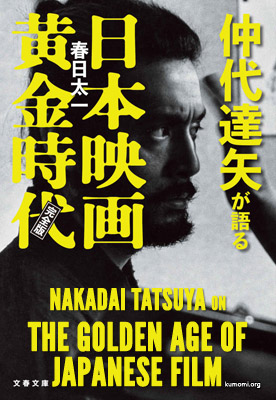Conclusion
The decline of film, the rise of television, and the transition to an internet society—the world has seen a tremendous amount of change in the past half century or so. While the Golden Age of Japanese Film has long since passed, many of the works from that time have found their way onto formats like VHS and DVD, still surviving today. “Revival houses” and similar movie theaters are still going strong, featuring unique films in their showings, and you can easily find plenty of video rental stores in town.
I admit, I do miss the big screen of times past, and so I like to go to the movies to see those works whenever I can. But regardless of whether or not it’s a film that I myself appeared in, whenever I’m watching those old movies, the thing I find the most moving is the realization of how so many of those actors have passed away. I often find myself counting them on my fingers. “Ah, that actor just passed last month…” “Oh, he’s not here anymore either…”
